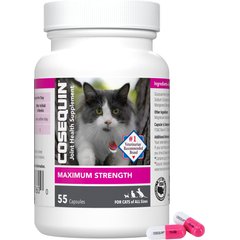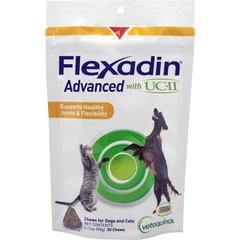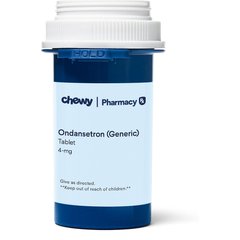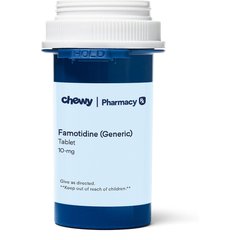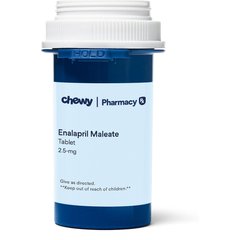10 Most Common Illnesses in Senior Cats
DjelicS/E+ via Getty Images
When your kitten ages to an adult cat and begins inching toward their golden years, it’s important to keep an extra eye on their daily behaviors for any common signs of illness.
Today, most cats live into their late teens to early 20s because of better nutrition, living indoors, and the development of modern veterinary medicine. Because cats are living longer, the age at which they become a senior has changed.
Let’s look at some of the most common illnesses in senior cats, and what to watch out for as a pet parent.
Most Common Illnesses in Senior Cats
When your cat becomes a senior, there are plenty of age-related health conditions to expect like arthritis or dementia.
However, there are plenty of less common illnesses to be aware of, too.
1. Kidney Disease
There are different kinds of kidney disease in cats, but chronic kidney disease (CKD) is the most common. CKD is a progressive loss of kidney function.
Though there’s no cure for CKD, it’s manageable with special diets and increased fluids.
Supportive care may also be needed, such as anti-nausea medication, appetite stimulants, and mineral supplementation such as phosphate binders and/or potassium supplements.
2. Diabetes
Diabetes in cats often develops between middle age and senior age and may present with a variety of symptoms. Diabetes is treated with daily insulin injections and a strict diet of low carbohydrates as well as additional care.
3. Hyperthyroidism
Hyperthyroidism is an overproduction of thyroid hormone (thyroxine) caused by a benign thyroid tumor. The most common sign of hyperthyroidism in cats is weight loss despite a healthy, sometimes ravenous appetite.
The only cure for hyperthyroidism is radioactive iodine treatment, but it can also be treated with daily medication and change in diet.
4. Dental Disease
Cats of any age can develop dental disease, but they often become more at-risk when they’re older. It may develop into gingivitis, periodontal disease, tooth loss, or infections in the mouth. These infections can travel elsewhere in the body—making them more serious.
Dental disease in cats may also cause anorexia in cats, which can lead to a serious and potentially life-threatening condition called hepatic lipidosis (fatty liver disease).
Dental disease can be prevented with daily teeth brushing with a cat-friendly toothpaste as well as routine dental procedures with your veterinarian.
5. Cancer
Cancer is a common condition in aging animals. Cancer is a result of abnormal cell development that leads to tumors. Common cancers in cats include lymphoma, mast cell tumors, and squamous cell carcinoma (SCC).
Cancer in cats may be treated with a combination of surgery, chemotherapy, or radiation depending on the location, type of cancer, and how aggressive it is.
6. Dementia
Dementia in cats is an age-related illness that causes the death of certain nerve cells in a cat’s brain. These cells are responsible for memory, learning, sleep cycles, spatial awareness, and many other crucial body processes.
While there is no cure for dementia in cats, it can sometimes be managed with treatment. Treatment may involve environmental changes, antioxidant supplementation, and medication such as selegiline.
7. Arthritis
Osteoarthritis (OA) is a degenerative disease in which the cartilage of a cat’s joints breaks down over time. Cartilage helps cushion the joints.
Without it, the bones can rub against each other, causing significant pain, inflammation, and damage. Cats are commonly affected by OA in their elbows and hips.
OA is diagnosed by a physical exam as well as X-rays of the joints.
The goal of treatment is to slow down the process of OA, with a possible combination of:
8. Hearing and Vision Loss
Hearing and vision loss are common in senior cats.
Vision loss is most often secondary to an underlying medical problem such as high blood pressure or an injury such as head trauma.
Hearing loss in cats is usually acquired and secondary to other conditions like polyps, chronic ear infections, or tumors in the ear canal.
While the underlying cause of deafness may be treatable, deafness in one or both ears is usually permanent.
Cats with hearing or vision loss can still lead full lives with some changes to their environment and their daily routine.
For cats with hearing loss, often the vibration of your steps alerts them that you’re coming close.
If your sighted cat is dealing with sudden vision loss, ensuring their environment does not change can help them continue to thrive in their known territory.
9. Gastrointestinal Disease
Gastrointestinal (GI) disease in cats often manifests as vomiting, diarrhea, lethargy, and loss of appetite. In senior cats, weight loss is the most common sign of GI disease.
Chronic medical conditions that may cause GI disease in senior cats are:
-
Gastroenteritis
-
Cancer
-
Kidney disease
-
Liver disease
As cats age, their immune system becomes less efficient and infectious agents such a virus, bacteria, or parasites can cause GI disease.
Typically, GI disease can be managed or treated with:
-
Anti-diarrheal medications such as metronidazole
-
Antinausea medications such as Cerenia® or ondansetron
-
Antacid medications such as famotidine
-
Fiber supplementation such as canned pumpkin or a fiber powder
-
A special diet
10. Heart Disease
Heart disease in cats occurs when the heart muscle is unable to contract normally, and blood cannot properly flow throughout a cat’s body.
The most common cause of heart disease in cats is hypertrophic cardiomyopathy.
Heart disease disrupts the blood’s normal flow, which can cause a blood clot, also known as a saddle thrombus.
Blood clots in cats often cause sudden pain, hind leg paralysis, and vocalizing.
Treatment for heart disease in cats typically involves oral medications such as ACE inhibitors (such as enalapril) and a change in diet. Severe cases may require oxygen therapy.
When our pets start to age and have signs of illness, it can be concerning and overwhelming for any pet parent. Regular check-ins with your vet can help you stay on top of any potential health issues.
If you notice any of these symptoms or your cat doesn’t seem like themselves, speak with your veterinarian.
Keeping up with routine checkups every six months with your senior cat also helps to pick up any medical issues before they become too serious or too advanced for treatment.



